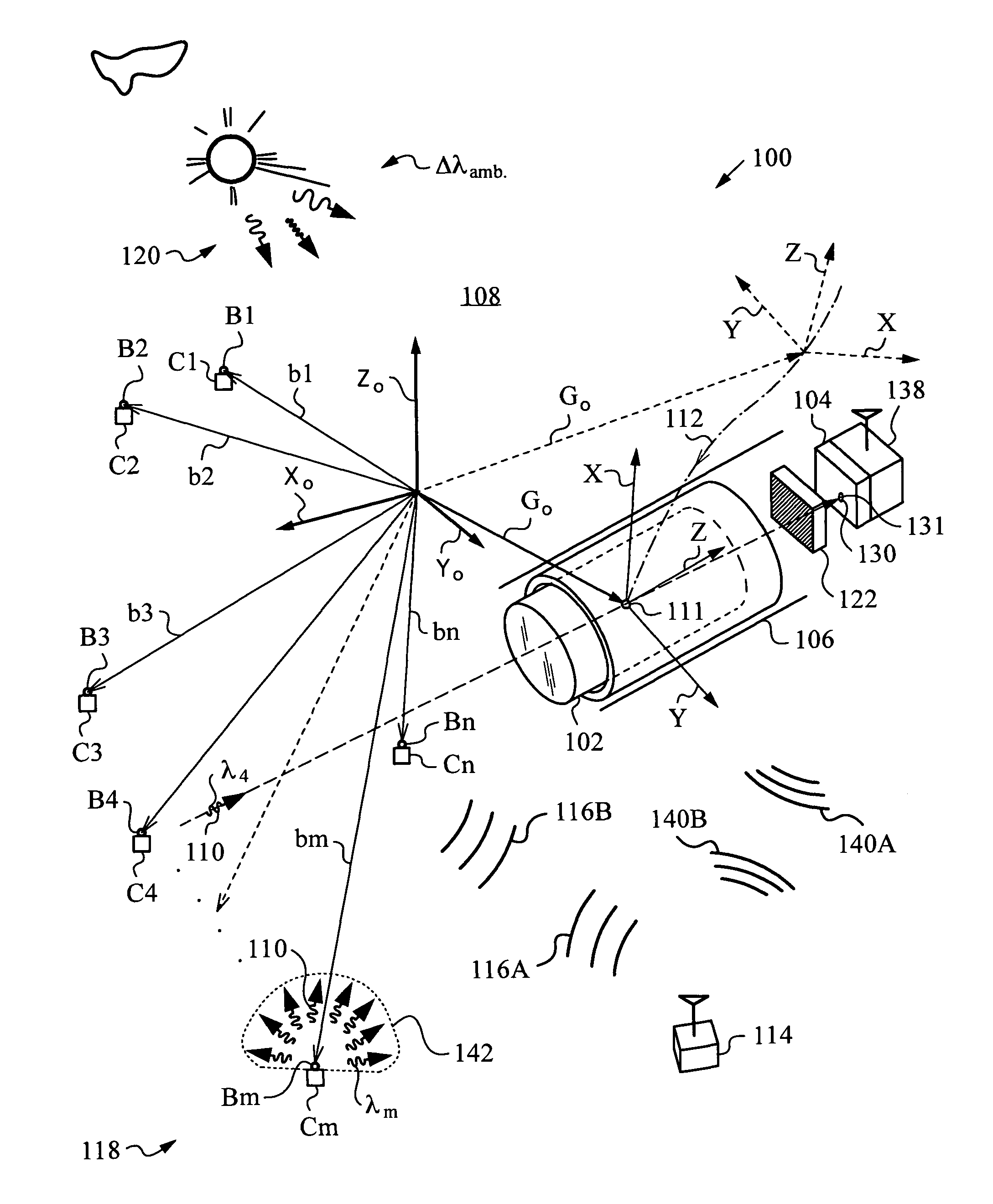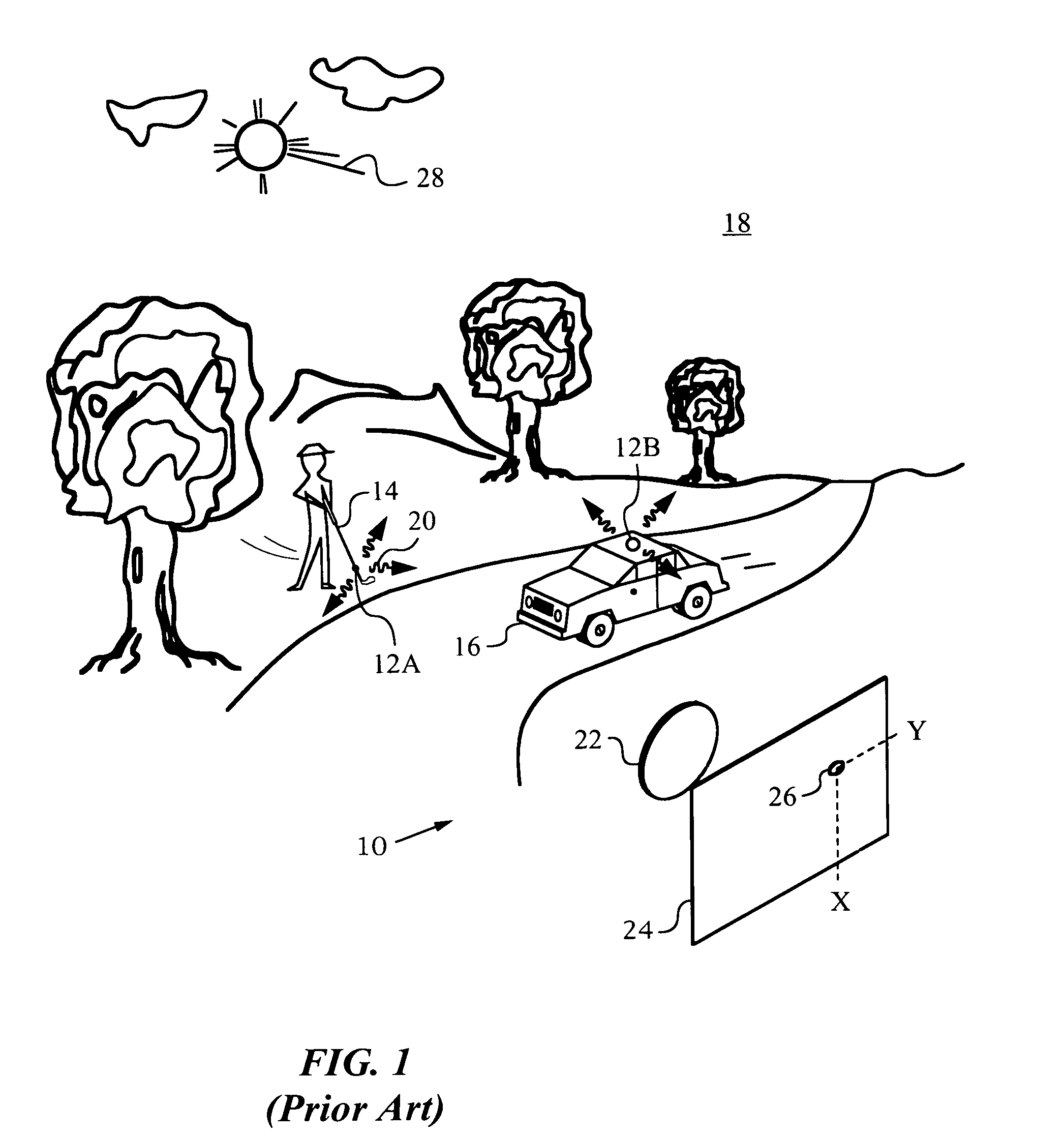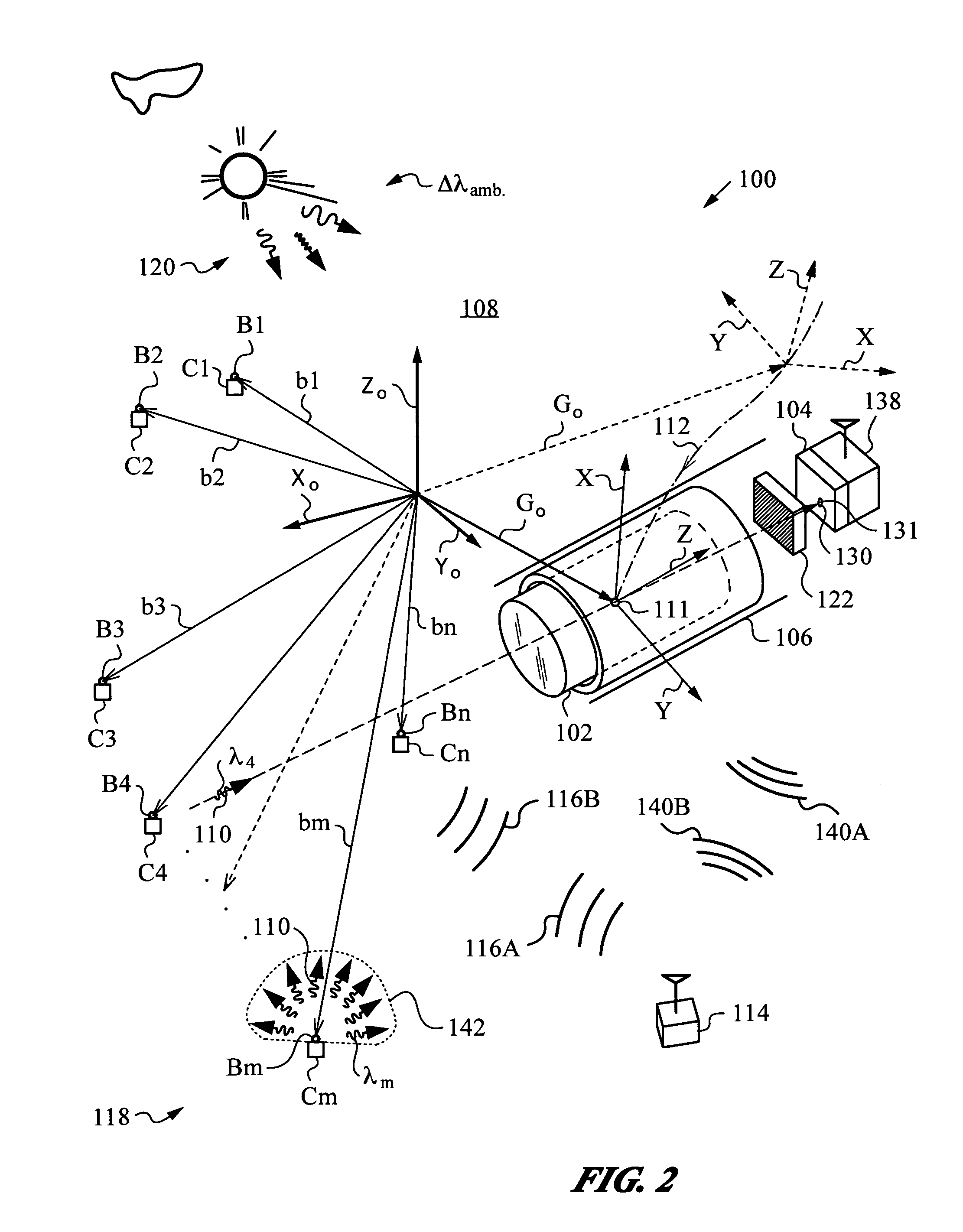Optical navigation apparatus using fixed beacons and a centroid sensing device
a technology of optical navigation and centroid sensing, applied in static indicating devices, instruments, angle measurement, etc., can solve the problems of low-cost and low-bandwidth applications, too resource-intensive approaches using markers on objects and cameras in the environment to recover object positions, and inability to accurately determine the position of objects
- Summary
- Abstract
- Description
- Claims
- Application Information
AI Technical Summary
Benefits of technology
Problems solved by technology
Method used
Image
Examples
Embodiment Construction
[0048]The many novel and unobvious aspects of the present invention will be best understood by initially referring to a prior art system 10 as shown in FIG. 1. System 10 is a distributed motion capture system employing illuminated markers 12A, 12B attached to objects 14, 16 that are tracked in an environment 18. Markers 12A, 12B emit electromagnetic radiation 20 of a certain wavelength at known times. An optic 22 images radiation 20 on a position sensitive detector (PSD) 24 placed at a known location in environment 18. Note that most prior art motion capture systems use several detector modules to achieve a large field of view and higher measurement accuracy.
[0049]PSD 24 measures the center-of-mass or centroid 26 of the imaged radiation 20, which is typically the center of a spot corresponding to the marker that is active at the time of measurement. In other words, PSD 24 provides an x and a y position in its sensor plane corresponding to the centroid of the intensity distribution c...
PUM
 Login to View More
Login to View More Abstract
Description
Claims
Application Information
 Login to View More
Login to View More - R&D
- Intellectual Property
- Life Sciences
- Materials
- Tech Scout
- Unparalleled Data Quality
- Higher Quality Content
- 60% Fewer Hallucinations
Browse by: Latest US Patents, China's latest patents, Technical Efficacy Thesaurus, Application Domain, Technology Topic, Popular Technical Reports.
© 2025 PatSnap. All rights reserved.Legal|Privacy policy|Modern Slavery Act Transparency Statement|Sitemap|About US| Contact US: help@patsnap.com



